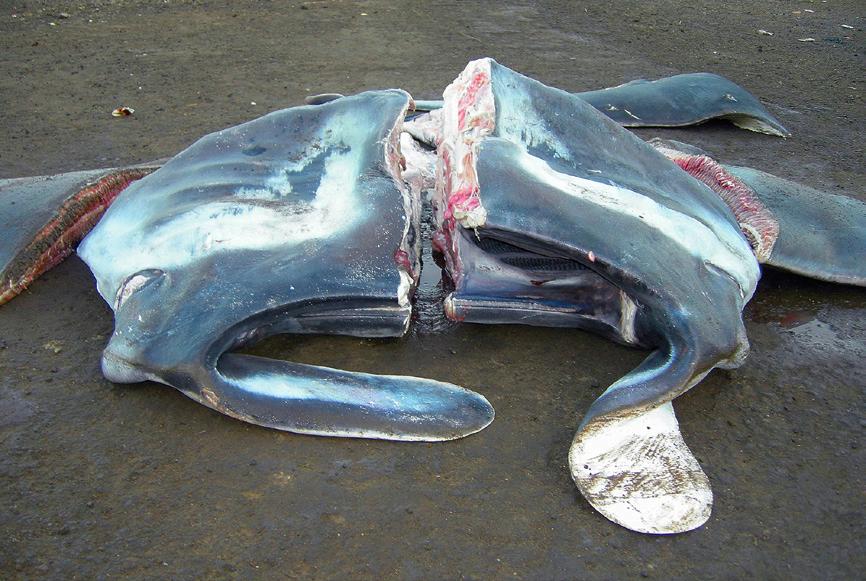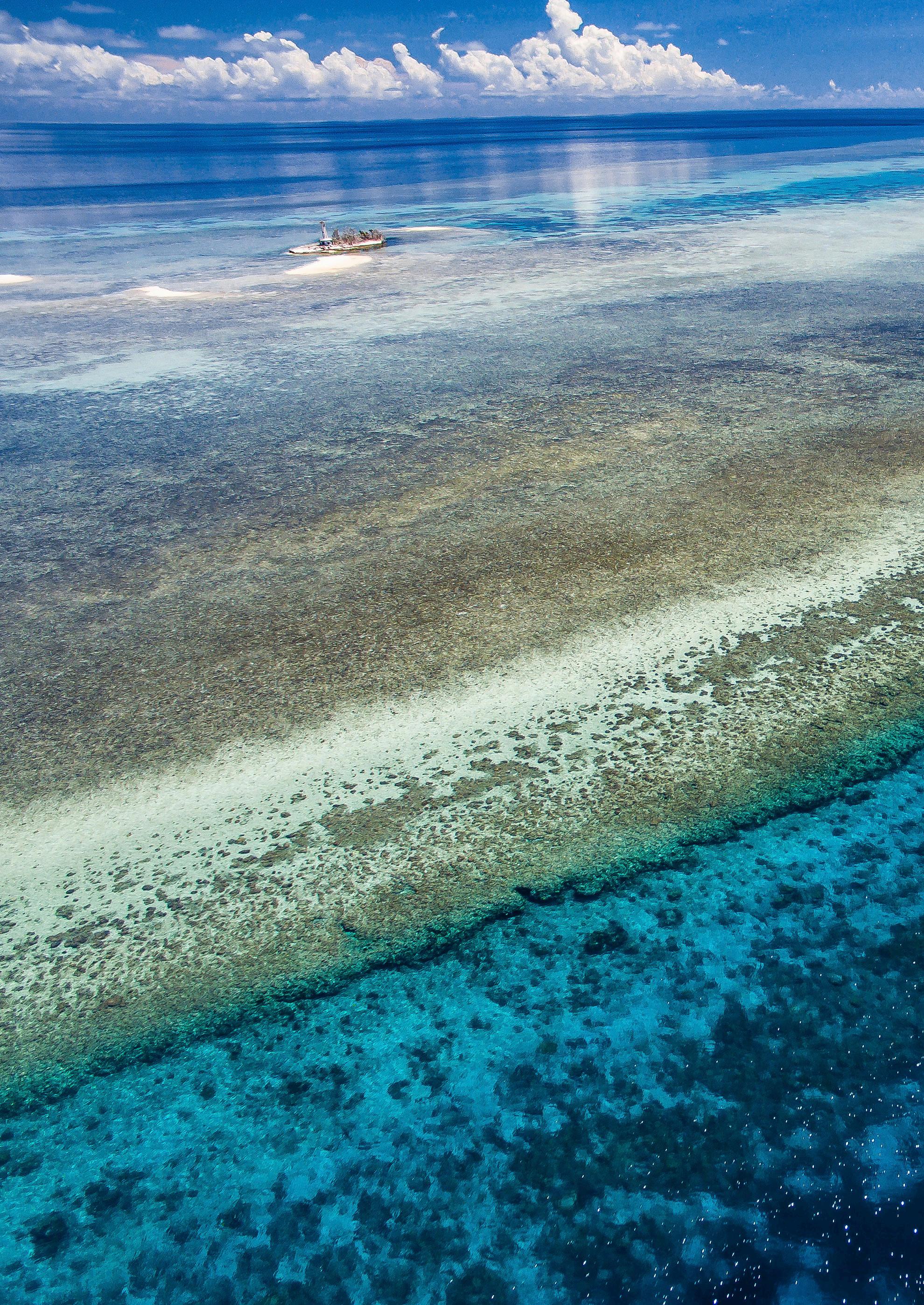
4 minute read
World’s Largest Dive Community Joins Forces to Protect the Great Barrier Reef
FEATURE KATE O’CALLAGHAN – WWW.CITIZENSGBR.ORG
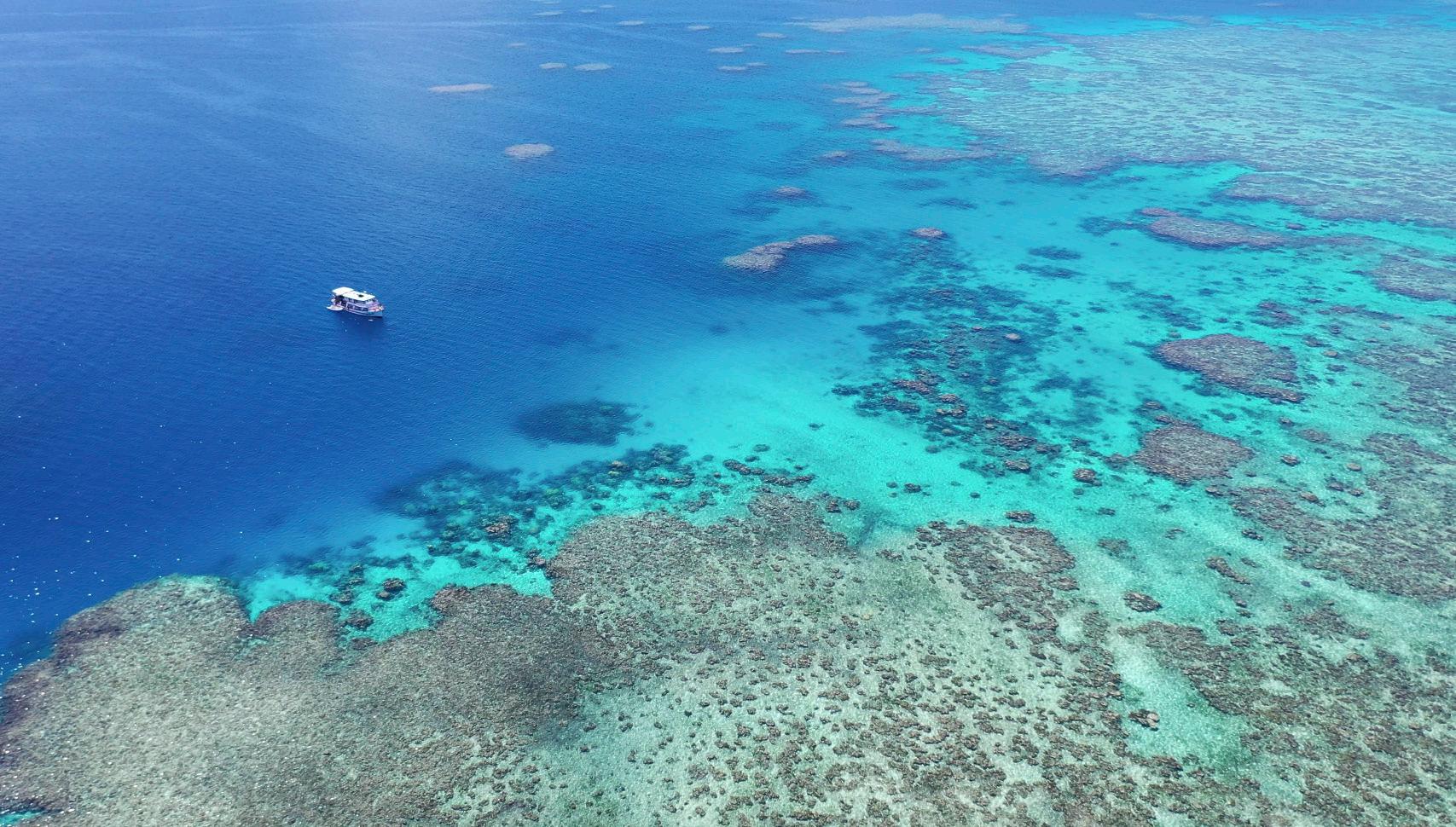
PADI®, the world’s leading scuba diver organisation, is teaming up with Citizens of the Great Barrier Reef on a first-of-its-kind citizen science project to help protect the earth’s largest reef system. The Great Reef Census provides opportunity for divers everywhere to impact the long-term health of one of the most iconic dive destinations on the planet through online image analysis.
“As the impacts of climate change and other threats accelerate around the world, there is an urgent need to scale-up conservation efforts globally, which requires everyone to take part,” says Andy Ridley, CEO of Citizens of the Great Barrier Reef. “The global dive community is in a unique position to support these efforts with the skills, passion and knowledge needed to support marine conservation efforts.”
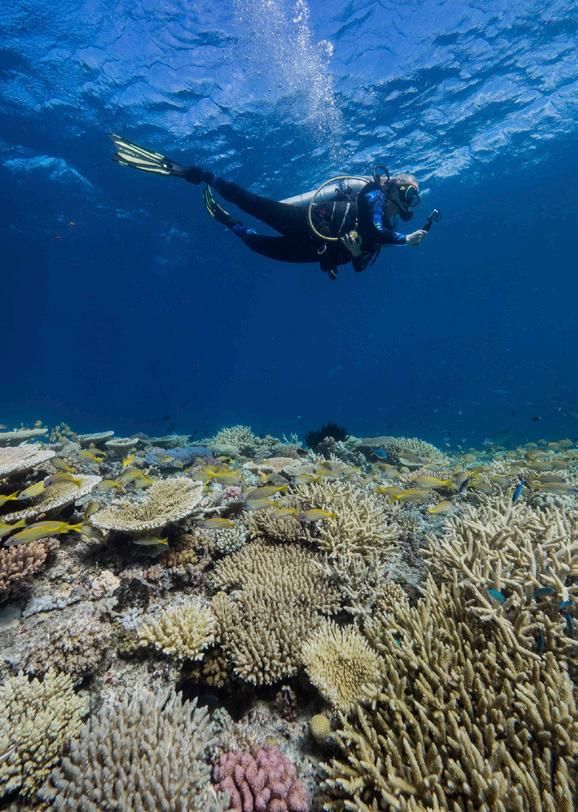
Diver taking survey photos for the Great Reef Census at the Ribbon Reefs. Photo by Harriet Spark.
From October to December 2020, divers, dive boats, marine tourism operators and others in the reef community were mobilised to create a makeshift research flotilla. Their mission: to capture large-scale reconnaissance data and images from across Australia’s Great Barrier Reef. Dive crew, scientists, tourists and conservation groups volunteered hundreds of hours and surveyed more than 160 reefs from the tip of Cape York to the remote southern Swains. Over 13,000 images were captured and uploaded to the Great Reef Census platform to be analysed.
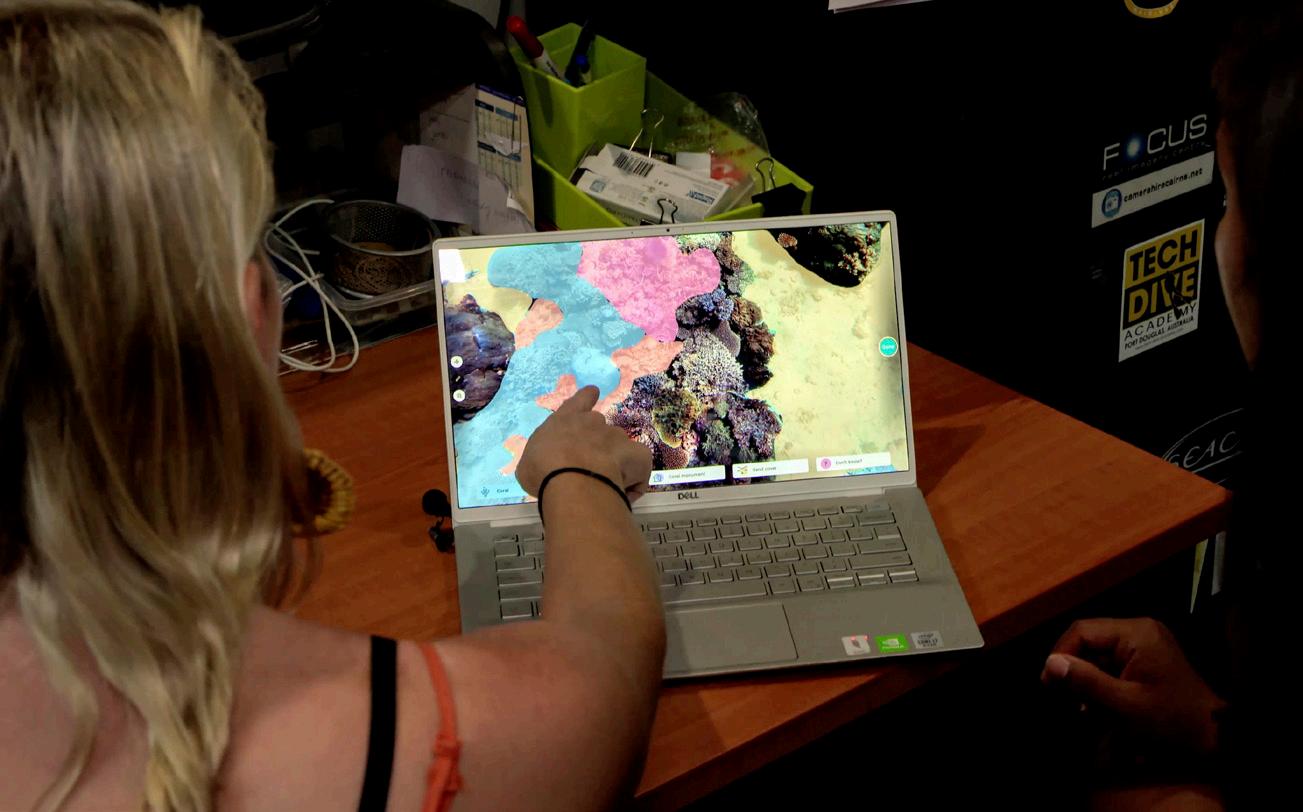
Citizen scientists analyse an image on the Great Reef Census website
“As PADI scuba divers and professionals, we are all ambassadors for our oceans,” said Michelle Barry, a PADI Master Scuba Diver Trainer based on the Great Barrier Reef. “The Great Reef Census is a ground-breaking idea for ocean conservation that is inclusive of anyone with access to the internet. This allows people all around the world to visit the Reef virtually and to be part of an important project to protect it.”
PADI and Citizens of the Great Barrier Reef are calling upon divers worldwide, and all who care about the future of the ocean, to help turn these images into meaningful data, helping scientists and managers better understand the health of the reef system. Each image can be analysed by anyone, anywhere, with internet access and a few minutes to spare.

An incredible reef site seen during the Great Reef Census expedition on Spirit of Freedom. Photo by Harriet Spark.
“This is the future of conservation on the Great Barrier Reef. This is where anyone can show that they care,” says Russell Hosp, PADI Master Scuba Diver Trainer, Environmental Manager and Master Reef Guide at Passions of Paradise, a PADI dive operator in Cairns, Australia.
“If people are really serious about saving the Great Barrier Reef, this is their chance to go to greatreefcensus.org, stick their hand up and say, ‘Yes, I want to be part of the solution.’”
The Great Reef Census is the first to test the effectiveness of mass-scale engagement in a significant underwater research project. If proven successful, the model can be rolled out across the world, providing real-time status updates for the planet’s treasured reefs. And, ultimately, serving as an influential tool to establish greater legal protections for coral reefs worldwide.

Citizens CEO Andy Ridley taking survey photos during expedition to the Swain Reefs on Adori II. Photo by Johnny Gaskell
“Divers have long understood the value of citizen science and their unique ability to witness and report changes to underwater environments,” says Kristin Valette-Wirth, Chief Brand and Membership Officer for PADI Worldwide. Programmes like Project AWARE’s Dive Against Debris® continue to effectively provide data to influence policy changes for increased ocean protections.
“Many of us may not be able to travel to or dive the reef right now but, regardless of circumstance, we can contribute to its future – and ultimately the future of other reef systems around the world,” continues Valette-Wirth.

Citizens CEO Andy Ridley at Moore Reef. Photo by Phil Warring.
From climate change to marine pollution and deforestation, the pressures on global ecosystems are accelerating rapidly. The Great Barrier Reef has experienced three mass coral bleaching events in the last five years, meaning traditional management and monitoring resources are becoming increasingly stretched.
"One of the greatest challenges to the Great Barrier Reef is that much of the world believes it’s already gone. But the Reef is massive, the same size as Germany, so the reality is it’s a patchwork system of incredibly healthy, degraded and recovering reefs,” said Ridley.
Only five to 10 percent of the Great Barrier Reef is regularly surveyed, the Great Reef Census is designed to help fill critical gaps in our knowledge of how individual reefs are coping with stresses and has already returned valuable data.

GET INVOLVED
All are encouraged to get involved in the survey at www.greatreefcensus.org. To learn more about issues impacting ocean health and ways to be part of the solution, join the community of PADI Torchbearers™ uniting to save the ocean at www. padi.com/onebillion.



